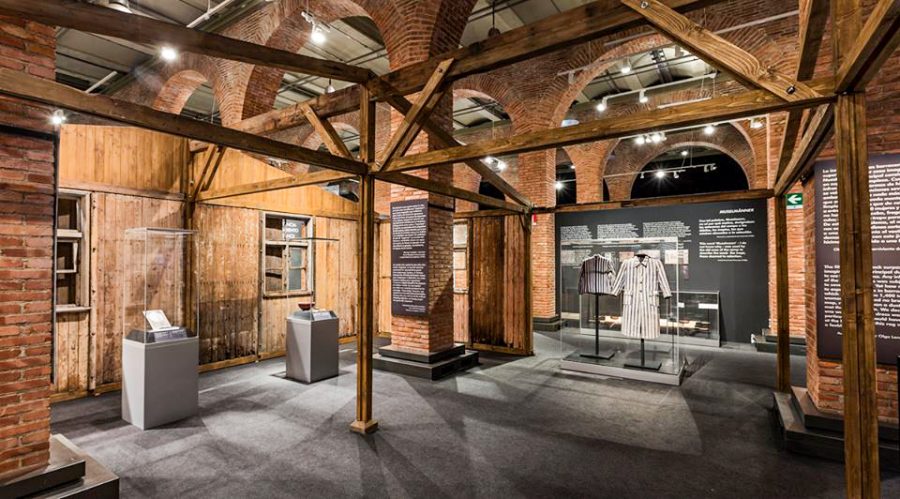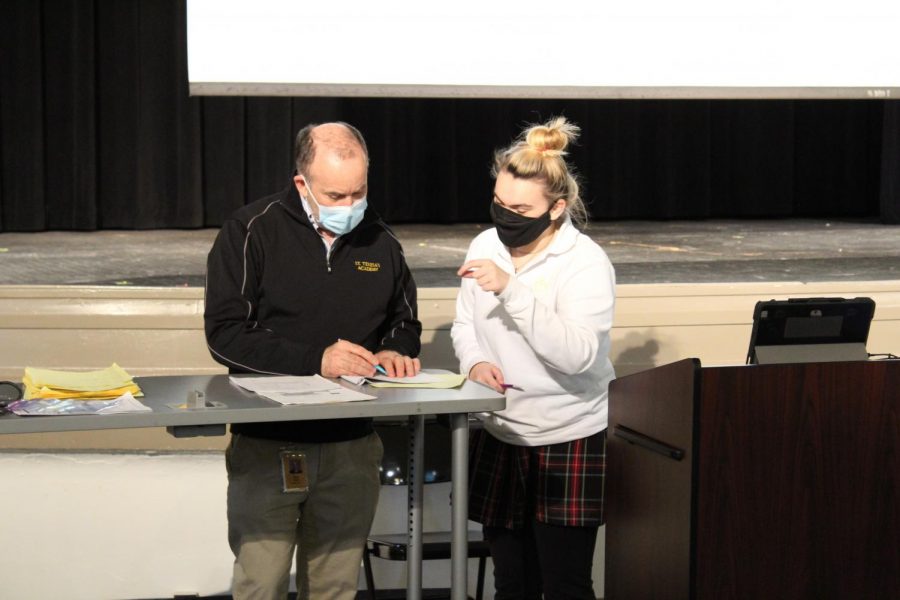In memory of son, family gives ceramics class new kiln to create unique pottery | by MOLLY MEAGHER
An STA family of alums and benefactors donated a new kiln to the art department for Ceramics classes. The kiln, called a raku kiln, was first fired by Ceramic II students on Sept. 24 behind Goppert Center. The estimated cost for the kiln was around $1,500. A raku kiln is a portable kiln that uses post fire reduction. Junior and Ceramics II student Eilene McSorley said that although students are unable to put handles onto the pieces when using raku, the kiln gives students another way to fire and experience something different.
‘[The raku kiln] is awesome,’Â McSorley said. ‘It’s super dangerous which is probably why I think it’s so awesome. It makes the coolest colors that you can’t create with other glazes.’Â
The Fahey family donated the raku kiln in dedication to Thomas Fahey, who died in a plane crash at age 26 in August 2006. The Fahey family found an organization in Thomas’ name to donate to people who need something that Thomas loved to do. Connie Fahey, mother of Thomas, is glad that students have the opportunity to use the new kiln and is able to pass on Thomas’ love for pottery.
Dibble originally applied for a grant asking for a raku kiln to the Women’s Circle of Giving (WCG), an STA organization that gives students and faculty financial support. The Fahey family, who are a part of WCG, saw Dibble’s grant asking for a kiln decided to independently fund for it.
‘My daughter is [also] in the [Women’s] Circle of Giving, Allison Fahey Schorgl, [and] when she and I saw [the grant asking for a kiln] it was one of the things we immediately thought of Thomas,’Â Mrs. Fahey said. ‘And [donating is] just something that gives us a lot of peace and pleasure to make people happy in his name.’Â
Unlike other kilns, the raku creates glazes through a process called post fire reduction. This process, according to Dibble, draws oxygen out of the pottery to create unique and unpredictable glazes. Because of the unpredictability of post fire reduction, students are unable to control the outcome of their pieces. Dibble said someone could make five identical pots but get a different glaze out of all of them when using the raku kiln.
‘Opening the bucket [used for post fire reduction] is like opening Christmas presents because you just don’t know what you’re going to get,’ Dibble said. ‘Because of all the firing and the different variables involved for post fire reduction, the results are always different. [The pieces change] due to where you put it in the kiln and how it [reacts] in the bucket. It’s the element of surprise and it’s kind of nice because of how immediate it is. It’s like opening a Christmas present, you’re like ‘Ëœoh, look what I got this time.”Â
The raku is also much quicker than other kilns. Firing with traditional kilns usually takes several days, whereas the raku uses about 80 minutes to set up, fire, and take down. Dibble said this gives students ‘instant gratification’Â when firing with the raku.
The art department is primarily funded from the school budget, student lab fees, and Fine Arts Boosters club (FAB), an organization whose goal is to raise money for the art, drama and music departments of STA. Now faculty members, like Dibble, are able to submit a request for a grant through the WCG for supplies or equipment that wouldn’t be covered with the existing funds. This is the second year WCG has been together and so far they have donated recycle bins and a projector to the school as well as financial support to several students. ÂÂ
Dibble said she is very grateful to the Fahey family for donating the kiln because it has allowed students to fire ceramics in a different way. She is also grateful to the administration for organizing WCG.
‘I think that the administration is really supportive,’Â Dibble said. ‘Just the fact that they developed this grant for equipment [shows that] innovation in the future is a beautiful thing.’Â





